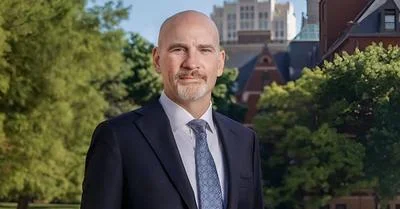Daniel P. Mehan, President and CEO | Missouri Chamber of Commerce and Industry
Daniel P. Mehan, President and CEO | Missouri Chamber of Commerce and Industry
A renewed effort to mandate paid sick leave is emerging in Missouri. Proponents of Proposition A have submitted paperwork for a constitutional amendment to be on the ballot during the 2026 election cycle.
The proposed measure, Initiative Petition 2026-047, resembles Proposition A, approved by voters in 2024. That proposition required businesses to offer paid sick leave and included a plan to raise Missouri’s minimum wage to $15 an hour by 2026.
In contrast, during the 2025 legislative session, lawmakers passed HB 567, which removed the paid sick leave requirement and ended annual minimum wage increases linked to the Consumer Price Index (CPI).
If approved, the new ballot measure would reinstate these provisions. It mandates employers provide one hour of paid sick leave for every 30 hours worked and begins CPI-based minimum wage increases in 2027. Additionally, it allows local governments to set higher standards for paid leave and minimum wage than state levels and creates a cause of action that could expose businesses to lawsuits.
The Missouri Chamber of Commerce and Industry opposes this proposal. They submitted a letter to Secretary of State Denny Hoskins expressing concerns about economic impacts.
“If enacted, the requirements created by Initiative Petition 2026-047 would have dire effects on Missouri’s economy, annual revenue, Unemployment Insurance Trust Fund, GDP, and much more,” wrote Kara Corches, Missouri Chamber president and CEO.
According to responses from the Missouri Chamber’s annual CEO Survey, 37% of business leaders indicated that Proposition A discouraged them from hiring new employees.
Based on analysis from opponents like Corches, "this new proposal could lead to an estimated $6 billion GDP loss in Missouri’s manufacturing sector and a nearly $20 billion loss in Missouri’s overall GDP."
Corches emphasized that “the ability for businesses to decide the policies that best fit their unique needs is the bedrock on which our free enterprise system is built.” She described the proposal as “a clear break from our system of free enterprise.”




 Alerts Sign-up
Alerts Sign-up